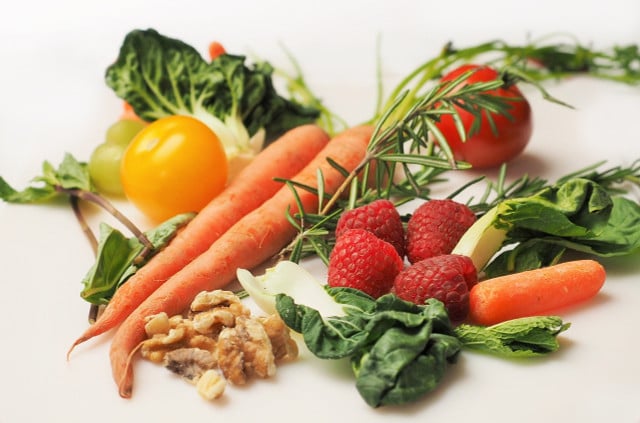
Do you have an unpleasant feeling of fullness after eating? We will explain to you how the pressure in your stomach arises, what you can do about it and how you can prevent it.
Are you bothered by an unpleasant, oppressive feeling in your stomach after eating? It often occurs when you have eaten too much, too quickly or very fatty food. A bloated stomach usually develops, which is accompanied by a feeling of pressure in the stomach area. We will explain to you how the feeling of fullness arises, which home remedies help against it and show you how to prevent the unpleasant feeling of pressure from occurring in the first place.
Feeling of fullness: causes and symptoms

(Photo: CC0 / Pixabay / matthiasboeckel)
How the feeling of fullness caused by food can vary from person to person. We’ll give you some causes:
- very fatty or sweet foods
- too large portions
-
flatulent foods
- eating too quickly, hasty
In addition to the feeling of fullness caused by food, a heavy stomach can also have psychological causes. If you often feel anxious, agitated or stressed in everyday life, this can affect your stomach, among other things. This can lead to digestive problems such as a feeling of fullness, flatulence, stomach pain or diarrhea.
Caution: If you often suffer from a feeling of fullness or if it is accompanied by symptoms such as nausea and vomiting, this may indicate a gastrointestinal disease. Causes in this case could be, for example, intolerances, irritable bowel syndrome or inflammation of the gastric mucosa. In this case, medical advice should be sought to rule out more serious illnesses.
A feeling of fullness is expressed by various symptoms, sometimes more, sometimes less severe:
- Unpleasant feeling of fullness in the stomach and/or intestines
- Pressure in the digestive tract
- sometimes stomach cramps and nausea
- Flatulence
- constipation
- Belching
Treating bloating with home remedies

(Photo: CC0 Public Domain / Pixabay / congerdesign)
A feeling of fullness is an unpleasant matter. With these home remedies you can relieve the symptoms and relax your digestive tract:
- The head of the German Society for Nutrition, Dr. oec. troph. Petra Schulze-Lohmann, told AOK that warmth on the stomach is good for some people. For example, you can put a cherry stone pillow or a hot water bottle on your stomach. She also recommends plenty of exercise and, ideally, a digestive walk after eating.
-
Fennel, anise and caraway – each plant has a calming effect on the stomach, often available in combination as a tea.
- Caraway is beneficial not only as a tea, but also as an oil. Caraway oil can be used externally to treat digestive problems. It inhibits gas formation.
-
Peppermint relaxes the stomach and intestines and stimulates digestion.
- A gentle abdominal massage can help get the intestines moving.
How to prevent bloating

(Photo: CC0 Public Domain / Pixabay / dbreen)
Although a feeling of fullness usually does not last long and goes away on its own, you should try to avoid it from the start. You can follow these tips:
- Avoid extremely fatty and gassy foods.
- If you eat regularly and in a balanced way, you can counteract the feeling of fullness.
-
Take your time to eat and don’t rush your food.
-
Chew thoroughly – this will take a lot of the work off your stomach.
- Avoid wearing clothes that are too tight around the stomach area. Your stomach and intestines need space for digestion.
- Make sure to eat only small portions and light meals in the evening.
- Integrate exercise into your life. Exercise will help you stay healthy and at the same time help your digestion.
Read more on Techzle\.com:
- 5 effective home remedies for constipation
- Caraway tea: use and effect on flatulence
- Preparing fennel: recipes for frying, cooking or eating raw
Edited by Melanie Grünauer
** marked with ** or orange underlined Links to sources are sometimes affiliate links: If you buy here, you are actively supporting Techzle\.com, because we then receive a small part of the sales proceeds. More information.